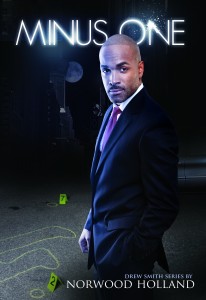A Conversation with Brian Boger
January 17, 2014
When I first picked up Southern Fate I thought because the author was an attorney it was just another legal thriller, but the opening didn’t neatly fit into the thriller formula. I read on thinking perhaps it was a mystery but the first body didn’t show up until Chapter 9. Obviously not a mystery, so I read on and suddenly it swept me up and blew me away like a hurricane. The genre was literary and quintessentially Southern with elements of both mystery and thriller. The novel centers on the inner story of a South Carolina attorney Frank Rhodes and the journey to his fate and fortune.
Introduced as a rather pathetic character Frank Rhodes is an accident prone klutz and a mediocre lawyer whose only passion is hunting and fishing. The only thing making him worthy of attention is his extreme good looks. Suddenly things change for Frank in a big way when he lands a windfall judgment instantly propelling him into the national spotlight. On the road to money and fame he soon learns the bad news his wife is leaving him for another women. And things get complicated quickly when a serial arsonists plaguing the city with one of the first victims being a member of Frank’s non-traditional family. Meanwhile his brother teaches him an unorthodox method on how to get develop rhythm to thereby overcome his clumsiness, a lifelong affliction.
There is much going on in Southern Fate with numerous subplots. The book is full unexpected plot twists and Boger takes the reader into areas past traditional Southern writers feared to tread. He incorporates several popular motifs commonly found in Southern literature including sense of family and sense of place. However we see some newer motifs developing. For example the non-traditional family and same sex relationships. At a young age Frank’s father was killed by a burglar. His mother and another single windowed mother with a son of similar age merged households to form a non-traditional family headed by two women. While these women are heterosexual another non-traditional family with young children taking root when Frank’s wife leaves him for her same sex lover with young children. These types of non-traditional modern family models are uncommon in traditional Southern literature but realistically capture today’s society. Lesbian relationships have rarely been openly presented in such openly fashion and again capturing the dynamics of today’s modern families.
Another traditional motif is the sense of place. Southerners are exceedingly proud of their region and as social historian Carl N. Degler once described the South as a region “where roots, place, family and tradition are the essence of identity”. All of which are apparent in Southern Fate which in this jet age moves from Columbia to Charleston, New York, the Bahamas and Costa Rica. However, make no mistake the stories beginning, middle, and end are deeply rooted in Columbia, and Boger does not spare the details of Columbia’s rich Civil War history recounting the tales of Sherman’s march. Indeed the ghost of the War against Northern Aggression and the horrors Columbia faced under Sherman conjures up a deus ex machina villain the serial arsonist. Like Bo Radley suddenly arriving on the scene and not a moment too soon.
This is perhaps the books one major shortcoming. We never get to know the villain or his motivations only that he has targeted women belonging to the Daughters of the Confederacy in the name of Sherman. There are no red herrings or clues to suggest anything about the character and his motivations. The villain emerges in the end and disappears in a puff of fire and flames. As a reader in the end I was left frustrated with too many questions as was Frank. Perhaps this was the author’s intent.
As social issues and politics evolve with time so does a society’s literature, and Southern Fate stands as an exemplary work of modern Southern literature. The author is a practicing attorney, the father of three. He and his wife live in Columbia where he studied law. He also holds a degree in English from the University of Virginia. Brian Boger pushes the boundaries and thereby expands the conventional motifs placing him among the vanguard of new Southern writers.
I would dare suggest being on the future lookout for Brian Boger. He expects to release his second title in 2014. When asked about the project, he says “the working title is Champagne Friday. It’s another legal thriller type book with some (surprise) literary themes like loss, redemption, vindication, and young men leaving their Bacchanalian Rite of Passage behind them for good women. It’s a humdinger of a book developing strong female characters appealing to a broader female audience. The women are cool.”
If the women are anything like the men of Southern Fate it should indeed be a humdinger. Southern Fate is an incredibly delightful read, rich with local color and chocked with quirky characters. Boger’s voice and style are a cross between John Gresham and John Brendt. The state capital Columbia might want to get behind their adopted favorite son because Southern Fate could very well do for Columbia what Midnight In the Garden of Good Evil did for Savannah.
A Conversation with Valerie Lewis Coleman
September 16, 2013
[jwplayer mediaid=”2029″]
About The Forbidden Secrets of The Goody Box
What your father didn’t tell you and your mother didn’t know. Successful. Beautiful. Intelligent. Yet a satisfying relationship eludes Debra Hampton. At thirty-five years old, she can’t figure out why her philosophy on men-and what they want from women-isn’t working. She’s trapped in a cycle of shattered relationships, until a friend refers her to a relationship guru. After some resistance, Debra finds refuge in his counsel as he helps her navigate through the storms of rejection and failed love. Once he reveals the error of her ways, will Debra master the forbidden secrets to attract her soul mate or continue to keep love at bay?
About The Author
Valerie J. Lewis Coleman has helped women find relational fulfillment by identifying the four types of male hunters, avoiding seventy percent of men who only want the goody box and winning the heart of Mr. Right-For-You. She explains how she overcame struggles and offers proven techniques to help you get off the crazy cycle of relational demise in her novel The Forbidden Secrets of the Goody Box! Visit TheGoodyBoxBook.com for the sequel, prequel and upcoming events! The bestselling author of Blended Families An Anthology, Valerie has helped thousands of families navigate the challenges of child support, visitation, discipline and more. With over twenty years of experience in family and relationships, she has given advice on varying issues including baby-momma drama, defiant children and disapproving in-laws. On her journey to assist others with building strong families, she shares her testimony and provides practical tools to help you stop the stepfamily madness in your home!
Join her mailing list to be eligible to receive one free e-book. One winner will receive a special code to download a copy code to Smashwords.
http://www.thegoodyboxbook.com
http://www.penofthewriter.com/
A review of Keith Thomas Walker’s ‘Dripping Chocolate’
December 29, 2012
 Keith Thomas Walker’s Dripping Chocolate is a romantic tale with an urban twist. The characters are not your usual upper crust lovers living fantastic lives in ideal settings coping with a complex complicated love. The characters are true to form working class single parents making it in the world. Nicole, a mother of three, works in a call center where her coworker girlfriends make up her supportive social circle. Charles Dwayne Hester is only months out of the joint taking on the challenges of an ex-con seeking employment while resisting the street’s lucrative drug hustle. Determined to go “legit” Charles is forced to rely on his money making assets, a handsome face and a well endowed muscular body. Charles is reluctantly drawn into stripping because of his desire to be a good father and the responsibility of two kids and twice the baby mama drama.
Keith Thomas Walker’s Dripping Chocolate is a romantic tale with an urban twist. The characters are not your usual upper crust lovers living fantastic lives in ideal settings coping with a complex complicated love. The characters are true to form working class single parents making it in the world. Nicole, a mother of three, works in a call center where her coworker girlfriends make up her supportive social circle. Charles Dwayne Hester is only months out of the joint taking on the challenges of an ex-con seeking employment while resisting the street’s lucrative drug hustle. Determined to go “legit” Charles is forced to rely on his money making assets, a handsome face and a well endowed muscular body. Charles is reluctantly drawn into stripping because of his desire to be a good father and the responsibility of two kids and twice the baby mama drama.
The story opens with Nicole—not without her own baby daddy drama–coming to the realization that her recent relationship with Byron isn’t working. He’s controlling and jealous and as advised by her girlfriends potentially dangerous. She breaks it off but Byron can’t seem to take go for an answer. To celebrate her 29th birthday girlfriends treat Nicole to a night out at Peeping Jane, a male strip club. Nicole shuns the idea of male strippers. Exciting and easy on the eyes she considers them undesirable and full of no class baggage.
Enters Dripping Chocolate his first night on the job stripping; learning the ropes and making plenty of money. Nicole gets a special dance and the encounter remains engrained in her memory. Shortly thereafter she bumps into Dripping Chocolate aka Charles at the Walmart while both are shopping for their respective sons. Her new perception of Dripping Chocolate as a responsible father dramatically changes Nicole’s first impression.
With cold feet she resists his overtures while considering her girlfriends’ conflicting advice. Nevertheless she dives into irresistible waters, but soon finds swimming in the budding romance a challenge. The plot thickens with heightened conflict when Charles’ stripping becomes the elephant in room.
Conflict is the key to Keith Thomas Walker’s string of successful novels. The author is a master of what literary agent Donald Maass calls micro-tension, the literary device designed to keep readers turning pages. While Dripping Chocolate is a romance it’s no fantasy dream but chocked with common real life urban struggles. Through sublime dialogue Walker’s characters jump off the page vivid and real. In great writing the plot is layered with conflicting relationships taken to dramatic heights. I highly recommend Dripping Chocolate.
You can listen to my in depth interview with the author on my blog EditorialIndependence.com.
Book clubs take on a dynamic function for independent publishers
October 23, 2012
I recently attended The Reading Divas Black Authors and Readers Rock Weekend an event bringing together writers and book clubs. As a writer I had the opportunity to introduce myself and my works to hundreds of new readers. It was also an opportunity to network with other authors and share marketing strategies.The participating clubs came from both near and afar with snappy names like Just Us, Sugar and Spice, Nooks, Books and Friends, and Body and Soul. Book clubs are no longer just readers coming together to discuss popular literature, but now take on a more dynamic function within the publishing industry. The decline of brick and mortar bookstores, offering popular book signing venues where fans met their authors, are being alternatively replaced with the intimate book club setting serving as an increasingly important marketing and distribution channel.
The weekend began with a Friday night reception and open club meeting featuring a discussion led by Karen Quiones Miller of her new book An Angry Ass Black Woman and a reading by the popular legal thriller author Pamela Samuels Young from her new novel Attorney-Client Privilege. The program was standing room only as were the four Saturday morning workshops and panel discussions which included: Is Urban Lit Really Literature, So You Wanna Write, What Impact has the Ebook had on Black Publishing, and How to Start, Improve and Get the Most Out of Your Book Club. All in fun there were raffles for attendees and a fashion contest for the best dressed club. Select clubs paraded through the banquet hall donning identifying distinctive outfits from custom tops and scarves to cable stitch sweaters.
The event highlight came when keynote speaker New York Times best selling author Mary Malone took the floor sharing her remarkable writing journey entertaining her spellbound audience with her compelling biography. Her first novel, The Upper Room was published by St. Martin’s Press in 1985. She is best known for her novel, God Don’t Like Ugly (originally published by Dafina Books in the fall of 2000), and the series revolved around the characters first introduced in this book. Her latest is God Don’t Make No Mistakes.
Pamela Samuel Young told how through a book club appearance she landed a guest spot on the The Monique Show. Many authors appreciate that one on one face time with their readers many of whom do not hold back on their criticism. The authors and guest book club members frequently expressed how valuable they found the event praising the The Reading Divas. Many are looking forwarding to next year’s event expecting it be an even bigger and better event.
TaNIsha Webb author of The Ultimate Book Club Experience and founder the Book Club University is a great source for both authors and book clubs.
A conversation with Keith Thomas Walker
September 7, 2012
[You can listen to this interview by going to this link Keith Thomas Walker.]
Keith Thomas Walker works as a hospital administrator in Fort Worth. His coworkers were shocked to discover him moonlighting as a romance author. He’s married with two children and at last count Keith Thomas Walker has published 10 books. I emphasize published because he has a sizeable unpublished repertoire. He’s been writing since 4th grade with obviously life long aspirations for the written word. He currently writes romantic suspense and urban fiction. Keith Walker insists that he does not write street fiction which begs an explanation since urban fiction and street literature are often used synonymously. I read two of his latest books, Jewell and the Dapper Dan and Harlot. Both are phenomenal reads racking up 5 star reviews.
At the recent Romance Slam Jam, a gathering African American in Little Rock I noticed Keith was doing a very brisk business at his signing table, more than some of the older more established writes. I was curious about his popularity and reading his book it became clear. Keith Thomas Walker is a writer of exceptional talent. Keith thanks for joining me.
Keith Walker: Thanks for that awesome introduction.
Norwood: It’s nothing but the truth. Keith, give us a sense of what you write. I think the titles alone are very revealing. So give me a rundown of some of your books.
Keith Walker: The first book I wrote was Fixin’ Tyrone. That was a romance novel based on a guy named Tyrone, who was getting out of prison, and he wanted to re-establish a relationship with the mother of his children. It was written 100% from her perspective; her name is Mia, and she wanted absolutely nothing to do with Tyrone initially. Tyrone was pretty much the cause of a lot of troubles in her life, and he went to prison and left her with her child. She pretty much moved on from those types of individuals. So the title for that one comes into play with the idea of fixing a man — is it possible to fix a man? That was the overall theme of that book — could Mia help Tyrone become the man that she needed him to be — if she were to take him seriously to being with. I don’t want to spoil the ending.
Then I wrote, my second books was How To Kill Your Husband. That title is actually, it could go both ways — some women are excited to see it, and some women are actually turned off by it. They tell me, oh, I don’t want to kill my husband, and things like that. That’s a shame, because that’s an excellent book. It’s about a woman who’s been married for 16 years, and she suspects her husband is cheating on her. So she gets with her friends, because she has two great friends in the book, and they try to figure out the mystery, they do a lot of detective work. Her friends are what really drive the book, because they’re hilarious and they’re really in her corner. Again, I won’t spoil the ending if she kills her husband or not.
Norwood: Please make it clear that this is not a how-to book.
Keith Walker: No, it’s not a how-to book, and I think that’s what confuses some of the readers who are turned off by the title, because they think that I’m giving an instructional manual on how to go about killing your husband, when it’s not that type of story at all. It’s a really heartfelt story. It was marketed as a romance; but technically, it’s not a romance novel, although she does have another love interest in the story.
You know, I’ve written a lot of books: A Good Dude, Riding the Corporate Ladder, Blow by Blow, The Finley Sisters’ Oath of Romance, Jewell and the Dapper Dan. And Dripping Chocolate is coming in November.
Norwood: Okay. Dripping Chocolate is the one I’m waiting for. I want to go back a second. Are you independently published or are you under contract? I notice you market under the imprint Keith Walker Books.
Keith Walker: Well, my website is KeithWalkerBooks.com, and that’s been the website I had when I published my first book. My first six books, from Fixin’ Tyrone through Harlot were actually published by a publishing company, Genesis Press. After that sixth book, I learned a lot about the industry, and I felt I could take it on my own. So yeah, the rest of my books are published by Keith Walker Books, which is now a company and a publishing company. I print my own books, I do the whole nine yards.
Norwood: Great, it sounds like you’re doing well also.
Keith Walker: Jewell and the Dapper Dan was the first release from Keith Walker Books, and that was a book that my publisher wasn’t interested in because of the violent aspects to it. I always knew that that was a great book, because a lot of my readers who look at my rough drafts — that was one of their favorites. There was actually about half of them who considered that one their favorite. So I always knew Jewell and the Dapper Dan had to get published.
Norwood: Well, of the two I have read, Jewell and the Dapper Dan is my favorite.
Keith Walker: I loved it.
Norwood: I want to talk about Jewell, and I also want to talk about Shayla, who is the character in Harlot. I’m just amazed at how you draw these true-to-form women, and they’re clearly identifiable, they have strong characters; while, Jewell is more like a gangster moll, Shayla is like a preacher’s kid. Shayla kind of turns me off because I see her more as a misandrist. She impresses me as a woman who hates men and she uses men.
Keith Walker: Yeah, Shayla’s definitely an unlikeable character initially and pretty much throughout the book. Whether she gets redeemed at the end, I guess that’s up to the reader to decide. That’s a challenge writing about a character that not necessarily likeable for the reader, or someone the reader could possibly relate to; because Shayla has issues and they stem from her past being a preacher’s daughter, but also from the affair she witnessed her father having. So Shayla, she is misogynist. Well, is that the same for men and women?
Norwood: In hating the opposite sex, men are misogynists, and women are misandrists.
Keith Walker: Okay, well she has issues with men and she takes it out on quite a few of them. She feels like she’s got a vendetta against a particular type of men, in particular; yes, she goes through the whole book trying to destroy these men. From a man’s point of view, I can definitely see how that could be a troubling read.
Norwood: Yeah, she’s an evil character — unlike Jewell.
Keith Walker: That’s the thing, because Jewell is actually the worst of the two if you look at their lifestyle; but yet, Jewell’s a more likeable character.
Norwood: Yes, she’s the more evil one.
Keith Walker: Well, she didn’t want to be evil; but yeah, she did do a lot of evil things. She had that conflict. I think that was the thing that helped Jewell, because she really didn’t — towards the end after she had a revelation, she didn’t want to be the same person she was. She actually had that conversation with Daniel, that she didn’t want to be evil; and he said, that’s what we are — that didn’t sit right with her. Yeah, Jewell, she definitely had redeeming characteristics.
Norwood: So you write from a woman’s perspective with a woman’s voice.
Keith Walker: Generally. I do switch it up now and then. With Blow by Blow, I think it was mostly from the woman’s perspective; but the main character, he was a boxer, and I did a few scenes and chapters strictly from his perspective. And with Dripping Chocolate, it’s pretty much half and half. So I think, I’m not sure why, but as I progressed as a writer, I decided that more points of view would be a better thing.
Norwood: Well, I’m curious because your depictions are so faithful. I figured you must be a keen observer of women.
Keith Walker: That’s definitely the truth. I always, at all times — women, they’re just interesting creatures. When they walk in a room, they demand attention and respect. Me, I’m just going to observe her period. I always watch, and I always listen more than I talk. So yeah, I pick up on a lot.
Norwood: I thought that was very interesting. And having met you, and the first thing I noticed about you is that you sort of stand back, an observer, you’re very unassuming, which really surprised me when I started reading your book. I said, oh, well, there’s a lot going on in this dude’s head, you know?
Keith Walker: I get that work a lot, because I work at a hospital and I talk to a lot of people all the time. When I started reading, they were totally shocked at the fact that I was writing period, and also what they were reading because they never saw it in me. But I’m not one to go around boasting. I just play my part — listen, observe. When it comes time for me to interact with my readers, I really do shine when those moments come.
Norwood: Not only do you shine with your writers, but also you have two different personalities: There’s the guy who stands back and watches, and I picked up on your YouTube channel — you can be pretty silly.
Keith Walker: Yeah, I can be.
Norwood: Dancing with your mother, I saw that one. Then there’s one where you’re doing these thoughts. You’re not all serious business, there are a lot of different facets to your own personality.
Keith Walker: I would say for the most part, at least 80% of the time, I am serious business; but when that 20% comes, I let my hair down all the way. But for the most part, yeah, I am pretty serious.
Norwood: Okay. And you are a romance writer; what drew you to that genre? I mean, I know why I write in that genre, because to me, that’s where the money is.
Keith Walker: Right. Honestly, it wasn’t a decision I made initially, because when I first started writing, I just wanted to write urban fiction, and not street lit — definitely not street lit. Just the urban fiction book, kind of like Walter Mosley and Walter Dean Myers and people like that. But that stuff was hard to get out the door, and I’d only written one book, but I found it hard to publish it.
I started writing short stories after that, because urban fiction was the only thing I had written, so I wrote a series of short stories, just trying to broaden my horizons. One of the short stories I wrote was a romance story, and I let a lot of people read these stories, and the romance story was the one that drew the most attention. Quite a few people encouraged me to write a romance novel. Even though I’d never considered it, I wrote Fixin’ Tyrone, and it just took off from there. I sent it to publishers, and immediately they were wanting the book, so I knew I hit on something there.
But the thing I always stress is, even though I do write romance novels, there’s still a lot of things I want to say. I have a voice, and there’s a lot of social things I want to bring up. So I still found a way to bring these things into the romance novels. So I don’t feel like I’m compromising my goals because I’m still doing the things I want to do, but I’m also doing it within the parameters of a love story — but that works for me.
Norwood: Well, I do think you write with a message. But now I want to get to that point about street lit, and you say you don’t write street lit, but you do write urban fiction. Now, according to Wikipedia, those two are synonymous; but I there is a gradation between the meanings of the two.
Keith Walker: I have anything against street lit or writers who write street lit, I just don’t want to be put in that category. I guess the reasons for that would be the flaws that I find in street lit. It’s kind of a touchy subject, because if I go into this, it’ll come out — well, he doesn’t like street lit, and he doesn’t like street lit authors; but it’s not all of them, it’s just some of them.
Norwood: I see understand, and I would like to make clear — street lit and urban fiction are not synonymous. Street lit is usually — it lacks the quality that you find in urban writers. Street lit, it’s usually produced by an untrained writer.
Keith Walker: The thing with street lit is that, in my opinion, almost the majority of them don’t pay attention to certain things.
Norwood: Well, it glorifies the wrong things.
Keith Walker: It glorifies violence for sure, it glorious the sex. The sex isn’t romantic, it’s just sex. They don’t do a lot of character development, they don’t do a lot of plot. I mean, it’s just — here’s what I’ve rationalized it as, or here’s what I compare it to: Women are in a beauty shop, and one woman comes in and says, girl, you should come outside, this girl’s dragging this other girl down the street, she done slept with her baby mama, and they over here fighting, blah, blah, blah. Every woman in the beauty shop would obviously be interested in that, and most of them would go outside to see it. That’s kind of what street lit is — it’s interesting, there’s no doubt about it, and it’s violent and it’s vulgar. It’s all these things that automatically draws your attention, but it’s not necessarily good writing. That’s why I don’t want to be characterized as that.
Norwood: And that’s the point I wanted to clarify. It’s like the distance between reading the New York Daily Posts and the New York Times. I think street lit lacks in redeeming value.
Keith Walker: Yeah, it totally does.
Norwood: Okay. Let’s talk a little bit about your first book, Colored Rags, I read about in one interview that you have a very interesting story about that and how that led to your becoming published.
Keith Walker: Well, Colored Rags, the first time I wrote that book, I was in college. I graduated college in 2000, and I believe I wrote that two years before graduation, so I wrote that a long time ago. At the time, I was doing a lot of poetry — I was mainly a standup poet, I went to poetry slams, and I was really successful with it. But, poetry is one of those fields where you can’t really get published and make a living doing it. So I decided to go ahead and write books, because even before the poetry, I’d always written short stories and things of that nature. All through high school, I won so many contests for writing.
I decided to write my book, and I wrote it about the things I was familiar with, which at the time was bad neighborhood, hoodlums, gang violence, drugs, murders, all of that. So I wrote the book, Colored Rags, and it was about an individual — it was kind of mirroring things I’d went through. So it was about a kid that was basically just trying to go to college and be something; but the summer before college, he gets caught up in a lot of gang violence.
That book, I passed around to a lot of people — everyone loved it, but I couldn’t get it published. I can’t tell you how many rejection letters I got for it, and it hurt my feelings because I felt like it was a good book. I knew I was a good writer, but I couldn’t get anywhere with that book. So I don’t know, that depression kind of just — it just took on a depression toward writing in general, and I didn’t try to write another book or story for nine years, until I wrote Fixin’ Tyrone. It was a long time.
What I learned from that was I was making a mistake in thinking that just because publishers didn’t like this book, it didn’t mean necessarily that I couldn’t make it as a writer. It meant just what I said, publishers didn’t like this book. But when I started writing again, there was no way I was going to stop like I did before. So I wrote Fixin’ Tyrone; as soon as I sent it out, I started another book; as soon as I sent that one out, I started another book. I just got into this pattern of writing that was going to be totally opposite of what I did before.
In that first year I started writing again, I wrote four books; the year after that, I wrote five books; and the year after that, I wrote four again. So I was literally on a roll. A publisher’s only going to publish two books a year regardless of what you write, so that’s why I have feedback a lot of books. That’s why, now that I’m independent, I can put out four books a year easy, and I can do that for two years and not even write another book.
Norwood: Well, now you can focus on marketing and getting the word out there, because it seems to me that you’re probably more popular in your region in the South and on the west side of the nation.
Keith Walker: The popularity is a thing that I’m still struggling with. It’s like the readers who do read me, they’re very vocal about how much they appreciate and like the writing. But I haven’t reached the success — I haven’t had a best seller, but I’m still —
Norwood: Well, that was my next question and the suggestion that you go for the Essence Best Seller List. There’s a way they go about that.
Keith Walker: I’m thinking Dripping Chocolate‘s going to be the one, because Dripping Chocolate‘s my first full-fledged romance that I’m releasing under my own company. So this is almost a make it or break it type of deal — not that I’m going to wallow if it doesn’t make it, but I really think Dripping Chocolate‘s going to be the one.
Norwood: I tell you, the title just sounds intriguing.
Keith Walker: Oh yeah, the title’s irresistible. The thing about that is, this book is far less sexual than the title would make it sound. I’m not going to spread that word, because women want it to be highly sexual. But it’s a good book. It’s about a guy named Charles, he got out of prison, and got into stripping just as a means to go an end; he meets a woman who’s got children, and they have a serious love for each other; he’s trying to do right — so that’s where the conflict comes in.
Norwood: What I like about the image of your male characters, they’re always these tall, dark, handsome men who the women seem to fall for.
Keith Walker: Yeah, no offense to you, but those yellow boys — it’s time for the dark men like me to come.
Norwood: I know what you’re doing, and I applaud your efforts. So, Keith, tell me what’s up next? I think you’re currently promoting Harlot.
Keith Walker: I’m promoting Harlot, but I’m also promoting my short story collection, because that short story collection that I told you about is coming out in October. I’m having a contest where I’m going to allow anybody who wins to have their story published with mine. That’s going to be an e-book that I’m going to release for .99 cents. It’s 60,000 words, so that’s a full-fledged book, basically. So I’m going to release it for .99 cents, I’m still going to have the paperback. My short story collection is not romance, so that’s the only thing that may pull it down a little bit, but they’re great stories and it’s going to be a great price, so we’ll see how that works out.
After that, Dripping Chocolate.
Norwood: Okay, you heard it, folks, Dripping Chocolate, look for it. To learn more about Keith, you can look him up at: keithwalkerbooks.com. Is that right, Keith?
Keith Walker: Yeah. Everything is on that site.
Norwood: Keith. I wish we could go on. I really enjoyed talking to you. It’s been a pleasure. I haven’t quite finished Harlot yet.
Keith Walker: The ending is — you’ll like it.
Norwood: Right now Jewell is still my favorite. There you have it. Keith Thomas Walker. Thank you, Keith.
Keith Walker: Thanks for having me.








